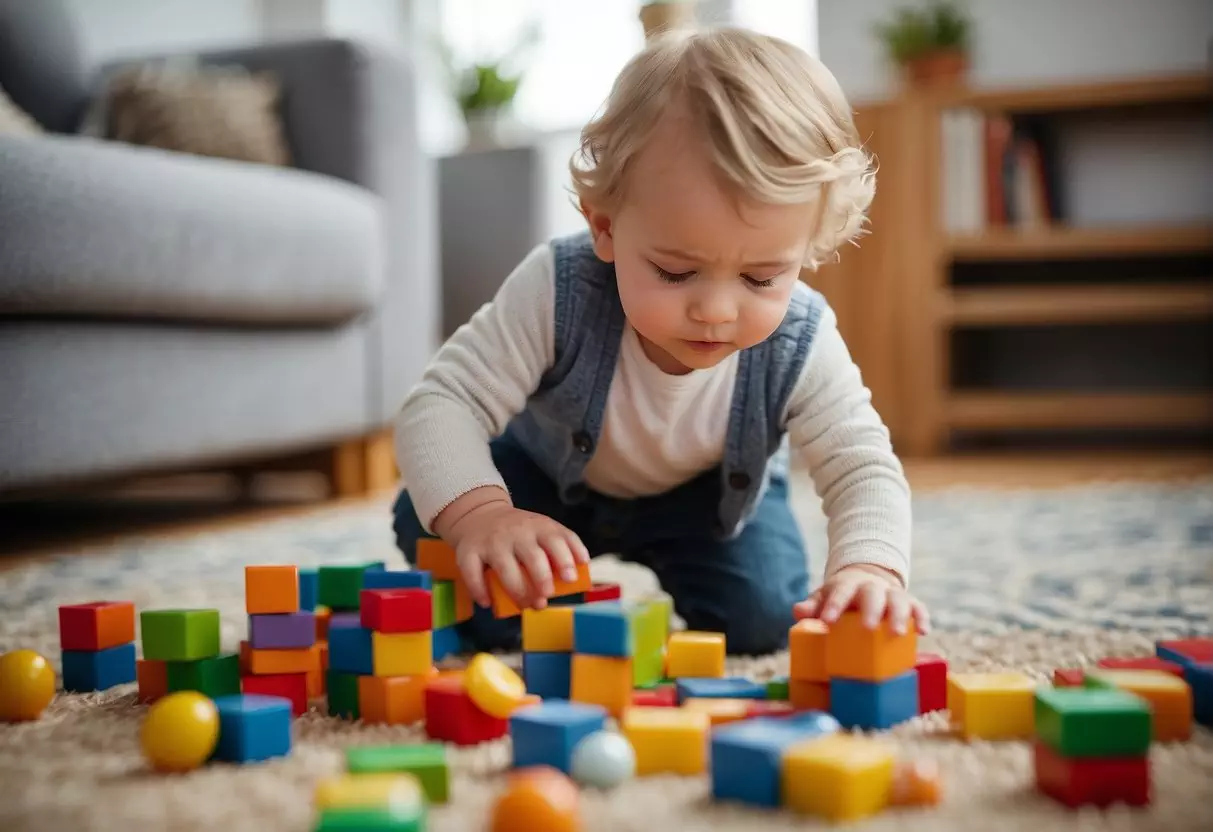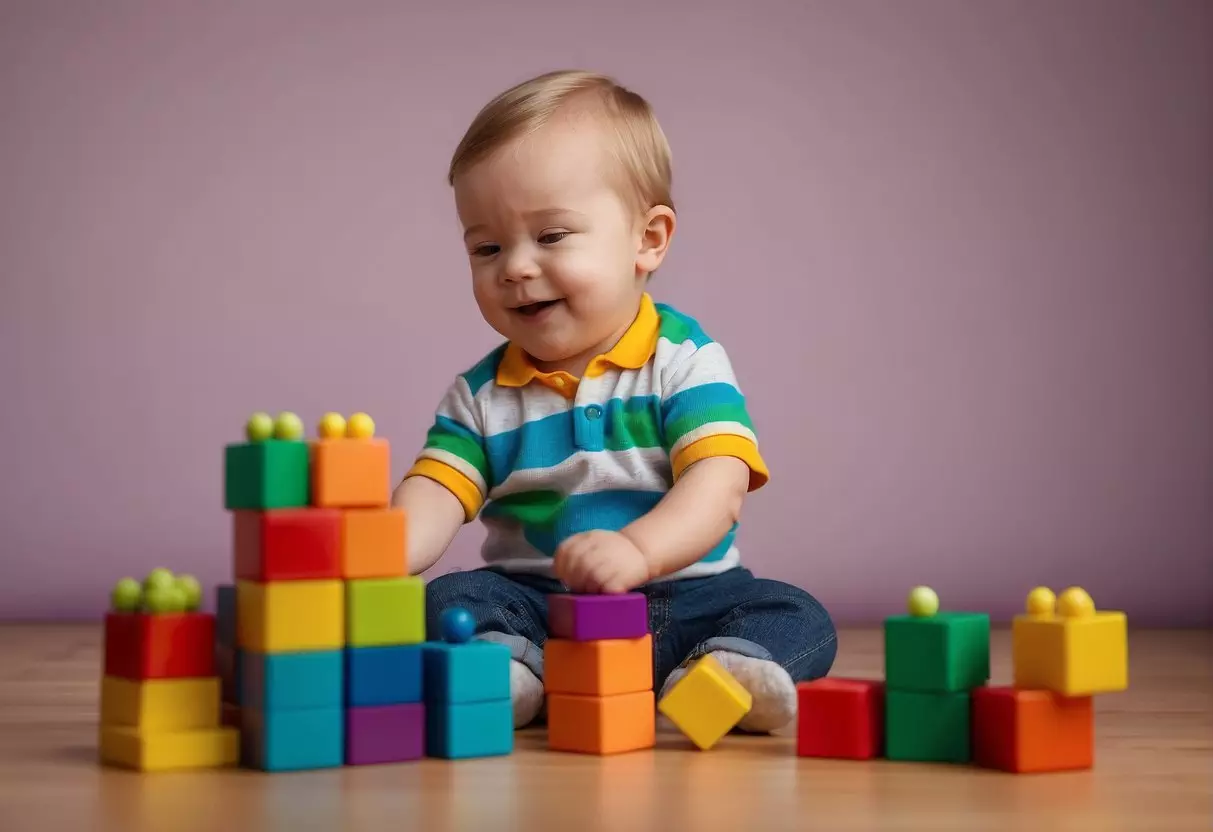Activities for an 18-Month-Old: Engaging and Fun Ways to Learn and Play
Engaging your 18-month-old in activities that promote their growth is both fun and crucial for their development. Around this age, toddlers are reaching new developmental milestones in cognitive, physical, emotional, and language development. They’re beginning to recognize patterns, solve problems, and understand emotions, which can be nurtured through play and interaction. It’s a time when they start to communicate more effectively, often stringing words together and expanding their vocabulary every day.

Introducing a mix of activities tailored to their developmental stage can greatly assist in honing these emerging skills. These can include simple games that encourage cognitive development, such as sorting by colors which helps them make sense of the world around them. Physical activities, on the other hand, can support their gross motor skill development. Simple joys like jumping on shapes drawn on the driveway or playing with a ball can bolster their coordination and balance.
For emotional development, activities that allow your child to express themselves or involve turn-taking can be incredibly beneficial. These interactions can guide them in understanding and managing their emotions and reactions in social settings. And to foster language development, engage in activities that involve singing, reading together, or even just narrating your day. These experiences build a solid foundation for communication skills, which are key at this stage of their growth.
Table of Contents
Cognitive and Sensory Development Activities
At 18 months, your toddler is at a crucial milestone where engaging in activities that boost their cognitive skills and sensory play is key. These activities are curated to spark their curiosity while they learn through exploration and play.
Puzzle Time
Introduce simple puzzles with large pieces to your young one. This encourages their problem-solving skills, and working with pieces of different shapes and colors strengthens their color and shape identification skills. Puzzles with knobs or pegs are great for this age, as they also help in developing fine motor skills.
Simple Hide and Seek
Playing a game of hide and seek with objects can accelerate cognitive development in toddlers. Hide toys under cloths or behind furniture and prompt your child to find them. This game enhances memory and teaches object permanence, knowing that things exist even when they can’t be seen.
Color and Shape Identification
Gather objects in various colors and shapes. Use crayons, markers, or foam letters to introduce your child to a world of color and shapes. Ask them to match colors or shapes, which hones their cognitive skills through sensory activities such as visual perception and categorization.
Sensory Bins
Create sensory bins with a variety of items for your child to explore. Fill a container with rice, beans, or sand and include items like plastic cups or toys for them to dig through. This type of sensory play is fantastic for developing tactile senses and encouraging explorative learning. Incorporating colored items can also reinforce color identification.
Physical and Motor Skill Development
In supporting your toddler’s growth, focus on activities that boost both gross and fine motor skills, strengthening their coordination and balance. Introduce fun challenges that encourage them to move their whole body, grasp and manipulate objects, and develop their hand-eye coordination.
Obstacle Course
Create a safe obstacle course in your living room or backyard to develop your child’s crawling and jumping skills. Use pillows for them to crawl over and small boxes to jump over or into, fostering both their gross motor skills and coordination.
Ball Games and Throwing
Playing catch or rolling a ball back and forth nurtures hand-eye coordination and fine-tunes those fine motor skills. For added fun and challenge, set up targets for them to aim and throw soft balls into, improving their grasp and release techniques.
Climbing Playground Structures
Encourage your little one to climb on playground structures under supervision to enhance their balancing skills and build confidence in their physical abilities. This activity contributes significantly to their gross motor development.
Dance Party
Host a dance party to catchy tunes that prompts your toddler to move to the rhythm. Dancing improves coordination and is a joyous way to practice balancing and jumping. It’s also an excellent activity for developing both fine and gross motor skills in a celebratory atmosphere.
By incorporating these activities into your routine, your 18-month-old will not only have a blast but will also make great strides in their physical and motor skill development.
Creative and Imaginative Play

Creative and imaginative play is a delightful way to enhance your child’s language skills and build confidence. Through dress-up and role-playing activities, your little one gets to explore different scenarios, which is excellent for vocabulary growth and encouraging a rich imagination.
Dress-Up and Pretend Play
Dress-up isn’t just fun; it’s a cornerstone of imaginative play. As you introduce various costumes and accessories to your child, you’re also opening doors to new worlds. Each character your toddler embodies helps to:
- Expand Vocabulary: Learning the words associated with different roles, such as “doctor,” “hat,” or “stethoscope.”
- Boost Confidence: Each new role offers a safe space to explore and assert themselves.
Consider setting up a dress-up station with clothing items like hats, scarves, or old shirts, making them easily accessible for spontaneous pretend play.
Storytelling and Puppet Shows
Narrative play is a fabulous way to foster language development and can start with something as simple as telling a story with a beginning, middle, and end. Here’s how to enrich the experience:
- Create an Interactive Experience: Use puppets to bring stories to life. This can be as basic as sock puppets or homemade cardboard characters.
- Engage and Educate: Ask your child questions about the story. “What do you think happens next?” This encourages critical thinking and predictive skills.
Remember, your engagement in these activities can significantly accelerate your child’s language and social skills while making the whole experience more enjoyable.
Interactive Activities
Your little one is at a stage where engaging in interactive activities can significantly boost their development. By participating in these fun and playful tasks, you’re not only creating precious memories but also fostering critical skills such as cause and effect understanding, patience, and confidence.
Music Time and Instruments
Music time is not just about having fun; it’s a chance to explore sounds and rhythms, which can be a delightful sensory experience for your child. Introducing simple instruments like shakers or drums allows them to experiment with cause and effect, as they discover the noises they can produce. You can sing along to children’s songs, enhancing their sense of community and belonging.
- Try This: Create a mini band with homemade instruments, encouraging your toddler to follow along in a game of ‘Simon Says’ with music.
Baking Together
Getting your hands doughy while baking together can be an exciting activity that teaches patience and teamwork. As your child helps with pouring and mixing, they’re learning to follow directions and the sequence of steps, which is vital for their comprehension skills.
- Important: Always supervise closely and make sure all ingredients and tools are safe for your toddler’s use.
Fishing with Magnets Game
Fishing with magnets is not only enthralling but also enhances hand-eye coordination and fine motor skills. Create a simple fishing game using a small rod with a magnet attached and objects that can be ‘caught’. It’s a playful way to understand cause and effect as each catch ‘magically‘ sticks to the magnet!
- Materials: Paper clips, lightweight toys, and a small magnet.
- Setup: Spread out the items on the floor and show your child how to catch them with their magnet rod.
By participating in these interactive activities, you’re helping to build your child’s confidence as they master new skills and navigate through each game.
Everyday Learning and Responsibilities
Integrating learning into daily routines helps your child develop language skills, vocabulary, and both gross and fine motor skills. Making these activities part of your 18-month-old’s responsibilities fosters a sense of accomplishment and bonding.
Daily Chores
Incorporating simple chores into your toddler’s day can instill a sense of duty and improve their fine motor skills. Start with tasks like putting toys away or feeding a pet. Use clear, simple language to guide them, gradually building their vocabulary as you name the objects they handle.
- Examples of Chores:
- Picking up toys
- Placing clothes in a hamper
- Assisting with setting the table (non-breakable items!)
Nature Walks
Nature walks are an excellent way for you and your child to explore the world together. It’s a prime opportunity to develop language skills as you describe what you see and hear. Encourage them to collect leaves or sticks, which also promotes gross motor skills through bending and walking.
- Activities for a Nature Walk:
- Identifying colors and shapes of leaves
- Listening for and naming animal sounds
- Feeling different textures, like bark or grass
Bath Time Play
Bath time can be more than just routine; it’s a chance for water play that builds gross and fine motor skills. With close supervision, introduce toys that allow them to pour and splash, simultaneously teaching cause and effect. Narrate the actions to help expand their vocabulary and reinforce language skills.
- Bath Time Activities:
- Floating and sinking toys to understand buoyancy
- Using cups of various sizes for pouring and measuring
- Singing songs about water to make it a joyous learning experience
